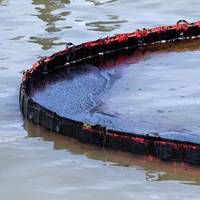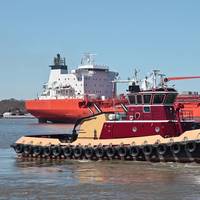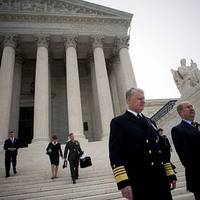Responder Immunity

The Federal Water Pollution Control Act (FWPCA – also known as the Clean Water Act), as amended by the Oil Pollution Act of 1990 (OPA 90), contains a responder immunity provision. That provision states, in pertinent part:(A)A person is not liable for removal costs or damages which result from actions taken or omitted to be taken in the course of rendering care, assistance, or advice consistent with the National Contingency Plan or as otherwise directed by the President relating…
Supreme Court Rules on Asbestos Liability

The United States Supreme Court held that, in the maritime tort context, a product manufacturer has a duty to warn when its product requires incorporation of a part that the manufacturer knows or has reason to know that the integrated product is likely to be dangerous for its intended uses and the manufacturer has no reason to believe that the product’s users will realize that danger. In the instant case, the manufacturers produced equipment for three Navy ships. The equipment required asbestos insulation or asbestos parts to function as intended…
Understanding Legal Liability in a Subchapter M Environment

There is more to SubM than just attention to safety. Protect yourself accordingly. In today’s environment, safety management systems for brown water marine operators are standard industry practice, whether they come in the form of the American Waterways Operators (AWO) Responsible Carrier Program (RCP) or the Tanker Safety Management Assessment (TSMA) framework developed by the Oil Companies International Marine Forum (OCIMF) for liquid carriers. However, with the full-fledged implementation of Subchapter M on the horizon…
Suppression of Random Drug Test Results: A Bad and Unnecessary Decision

Last September, an Administrative Law Judge (ALJ) unsettled much of the U.S. maritime industry when he dismissed with prejudice a U.S. Coast Guard (USCG) action to revoke a Merchant Mariner’s Credential (MMC) despite his finding that the mariner’s urine had tested positive for cocaine. The case is referred to as USCG v. Hopper, SR-2014-14. American Maritime Safety, Inc. (AMS) considered the Hopper outcome to be a bad decision, both because it imposes harsh evidentiary consequences…
“Maritime … Or Not?”

Here is a multiple choice question: which of the following contracts is considered to be a “maritime contract” under U.S. law? You will be forgiven if you simply tried to apply logic in answering this question and guessed that all four are maritime contracts. If you know your maritime law, however, then you should have answered that “c” and “d” are maritime contracts whereas “a” and “b” are not. Or, at least, that is the current state of the law. Why might this matter? In the first place…
Coast Guard Foundation Announces New Leaders

Robert J. Flynn Elected Chairman of the Board. ADM Thad Allen and Clay Maitland among an impressive slate of of 11 others. The Coast Guard Foundation, a non-profit organization committed to the education, welfare and morale of all Coast Guard members and their families, announced today that in accordance with its bylaws, a new slate of officers has been elected to serve on the Board of Trustees, beginning January 1, 2012. Robert J. Flynn was elected Chairman of the Board at the organization’s annual meeting in the fall. Joining Mr. Flynn as officers are Al J. Bernard, vice chairman; William E.
The Townsend Decision: Should Vessel Owners Deny Maintenance and Cure?

Unfortunately, as a vessel owner or operator, you have probably been faced with a situation where one of your crew members have allegedly become sick or injured while in the service of the vessel. As you are aware, once this injury or illness is reported to the company, the duties of providing maintenance and cure under the Jones Act begin. Unfortunately, instances of fraud where the employee may not have suffered the injury or illness that he or she is complaining of seem to be common.
Cox Disappointed by Asian Carp Ruling
Michigan Attorney General Mike Cox said he is extremely disappointed that the United States Supreme Court declined to immediately close Chicago-area locks that could stop Asian carp from entering the Great Lakes, but is pleased that Michigan's fight to reopen the Chicago Diversion case will continue. Cox also said President Obama, who failed to respond to Cox's previous request for an Asian carp conference, must now act and use his powers to close the locks because Asian carp eDNA continues to turn up near Lake Michigan. "I am extremely disappointed the Supreme Court did not push the pause button on this crisis until an effective plan is in place," said Cox.
Mansuy, 2010’s Best Lawyers in America

Christopher H. Mansuy, Esq., member of Carroll McNulty & Kull LLC (CMK) has been named one of 2010’s The Best Lawyers in America in the specialty of maritime law by his peers. Best Lawyers a 25-year-old, highly respected peer-review publication, compiles lists of top attorneys by completing extensive surveys with other leading attorneys. Mansuy received this honor in 2008 and 2009 as well. A resident of Chatham, N.J. Mansuy possesses 35 years of experience in handling maritime and commercial litigation matters in the state and federal courts of N.Y. and N.J.
Mansuy Joins Carroll McNulty & Kull

Carroll McNulty & Kull LLC (CMK) has announced that Christopher H. Mansuy has joined the law firm as a member. Mansuy brings 35 years of experience to CMK handling maritime and commercial litigation matters in the State and Federal Courts of New York and New Jersey as well as maritime disputes in arbitration including the Society of Maritime Arbitrators and the American Arbitration Association. With offices in New York and Basking Ridge, N.J., CMK provides comprehensive services to clients in the areas of admiralty, maritime, transportation, and international trade.
The Government Made Me Do It

When I was a child, I spent a good part of my time getting into trouble, as most children do. My favorite excuse was “someone else made me do it.” Unfortunately, my father was not a big fan of that excuse and I cannot recall one incident that was overlooked based on this defense. However, the Supreme Court of the United States has carved out such an excuse for equipment manufacturers that sell equipment or supplies to the United States military. This excuse is commonly referred…
Holding Your Breath

Ship Tracks South of , a satellite image acquired by NASA on March 4, 2009. On March 4, 2009, the skies over the northeast were streaked with clouds that form around the particles in ship exhaust. This pair of images shows how these ship tracks are different from the natural marine clouds in the same area. The top image is a natural-color (photo-like) view of the ship tracks. The image below reveals more information than a picture: it shows the size of the cloud droplets. Both…
Navy Photo of the Day

Secretary of the Navy (SECNAV) the Honorable Dr. Donald C. Winter, right, and Chief of Naval Operations (CNO) Admiral Gary Roughead depart the United States Supreme Court after giving testimony for the use of sonar in naval training exercises off the coast of . The Supreme Court will decide a dispute between the U.S. Navy and conservationists over sonar use during naval training exercises off the coast of . U.S. Navy photo by Mass Communication Specialist 2nd Class Kevin S. O'Brien
Diver Down!!! An Exception to the General Test for Seaman Status?
By James P. Nader & Joseph A. Once again we take that familiar voyage know as "determining seaman status." No matter how familiar the voyage there are always changes in the currents which guide your path. Seaman status is important because only a seaman may receive maintenance and cure, and pursue a claim for Jones Act negligence or unseaworthiness. The basic requirements for seaman status are well established in maritime law. In order to qualify as a seaman under the Jones Act, a person's employment duties must contribute to the mission of the vessel and be connected to an identifiable group of vessels in navigation. The United States Supreme Court has held that seaman status should be determined by the specific facts of each case.
Raising a Red Flag?
A Review of Recent Developments with the Americans with Disabilities Act's Requirements for U.S. By James P. Nader & Rudolph F. Douglas Spector and Tammy Stevens presumably do not know each other, but they have a lot in common. Approximately five years ago, both Spector and Stevens boarded cruise ships out of major ports in the southern United States. Both Spector and Stevens, who are wheel-chair bound, believed their respective cruise ships discriminated against them as disabled passengers. Both individuals filed suit in federal courts alleging violations of the Americans with Disabilities Act. Despite the similarities in their lawsuits, these two federal courts reached completely opposite results.
INTERTANKO Applauds U.S. Supreme Court Action
On Friday, September 10, 1999, the United States Supreme Court issued a writ to the federal appellate court that reviews decisions in the western U. S. directing a review of that court's disposition of litigation challenging tanker regulations imposed by the State of Washington. INTERTANKO had petitioned the Supreme Court for issuance of the writ. The challenged Washington State regulations imposed on U.S. and foreign tankers carrying oil in Washington waters a number of unique regulations governing on-board equipment, technology, crew training and qualifications, and operational requirements. INTERTANKO brought suit in 1995 challenging these rules as being constitutionally invalid given the substantial federal presence in the same areas of regulation.












